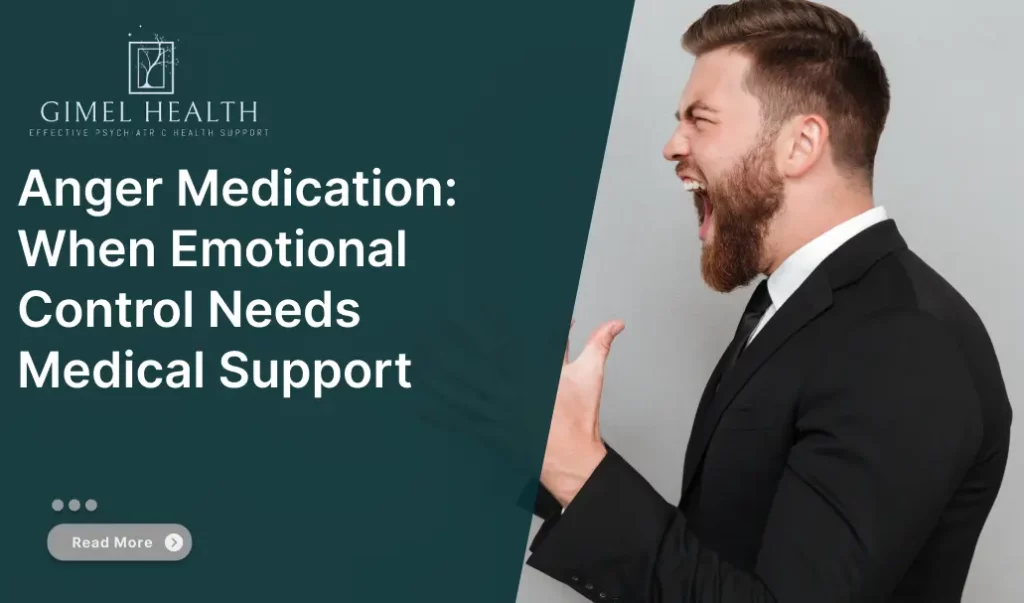
What to Know About Anxiety Treatment in NY When You’re Seeking Personalized Care
Anxiety is one of the most common mental health challenges facing adults and professionals today. If you are seeking anxiety

Depression is a mental health condition that’s been steadily affecting more and more individuals across the United States. Whether you’re experiencing persistent sadness, fatigue, or difficulty concentrating, it’s vital to seek a professional evaluation through a structured depression assessment. These assessments are more than just questionnaires, they’re extensive evaluations designed to accurately diagnose depression, determine the severity, and guide you through effective treatment.
This article is going to breakdown the varying tools used to assess depression, explain how mental health professionals interpret the results, and explore how depression assessments fit into the broader therapy care strategies.
A depression assessment is an evaluation conducted by mental health professionals to determine whether a person’s experiencing depression and, if so, to what degree. The process typically involves a combination of:
Self-report questionnaires that allow individuals to describe their symptoms
Clinician-led interviews to explore psychological history and emotional patterns
Observational assessments to evaluate behavior, mood, and daily functioning
This approach helps professionals identify specific symptoms, classify the type of depressive disorder, and develop a treatment plan that’s tailored to each person’s unique needs.

Depression assessments are crucial for early detection and responsive treatment. Many people experience depression without even realizing its clinical significance until symptoms begin to interfere with work, relationships, or your overall quality of life. Assessments not only validate a person’s inner conflicts, but also connects them to therapy options that can truly help make a difference.
Early screening also plays a vital role in suicide prevention. Therapists often incorporate suicide risk assessments into their diagnostic process, asking targeted questions about thoughts of self-harm or hopelessness, and evaluating protective factors like social support systems and coping mechanisms.
Mental health professionals in NJ rely on a variety of evidence-based tools to conduct depression evaluations. Each serves a different purpose depending on the context, setting, and depth of assessment required.
Beck Depression Inventory (BDI): One of the most widely used depression tests, the BDI consists of 21 questions that assess symptoms such as mood, energy levels, self-worth, and sleep disturbances. It generates a numerical score that reflects the severity of depression and helps track progress over time.
Patient Health Questionnaire-9 (PHQ-9): This brief, nine-question self-assessment is commonly used in both clinical and primary care settings. The PHQ-9 is known for its reliability and ease of use, categorizing depression into mild, moderate, or severe levels. It’s especially useful for initial screenings and follow-up evaluations.
Structured Clinical Interview for DSM-5 (SCID): The SCID is a clinician-administered diagnostic tool that aligns directly with the DSM-5 criteria. Unlike self-assessments, it involves in-depth questioning and is considered one of the most accurate methods for diagnosing depressive disorders and related mental health conditions.
Montgomery-Åsberg Depression Rating Scale (MADRS): Designed to measure the severity of depressive symptoms, MADRS is typically used by clinicians to assess treatment outcomes. It’s particularly effective in evaluating changes in mood and behavior during medication or therapeutic interventions.
One of the most important aspects of a depression evaluation is assessing the risk of suicide. Therapists ask direct questions about thoughts of death, self-harm, or hopelessness. They also consider risk factors like prior suicide attempts, substance abuse, and family history of mental illness.
At the same time, clinicians evaluate protective factors such as supportive relationships, religious beliefs, and personal coping strategies. If a client is deemed at risk, a safety plan is put in place immediately, which may include increased session frequency, hospitalization, or referrals to crisis services.
If you or someone you know is experiencing symptoms of depression, it’s important to seek help from a qualified provider.
At Gimel Health PC, located in Fort Lee, NJ, our team of licensed professionals offers comprehensive depression assessments and therapy options tailored to your needs.

Anxiety is one of the most common mental health challenges facing adults and professionals today. If you are seeking anxiety

Finding the right psychiatrist NJ is one of the most important decisions you can make for your long-term mental health.

Anger is a normal emotion, but when it becomes intense, unpredictable, or destructive, it may signal deeper mental health issues.
Your journey to better mental health starts here. With advanced expertise in biology and psychiatry, I build exclusive medication plans backed by science. Contact me to schedule your initial consultation.
(201) 815-4351
440 West Str, Ste 307, Fort Lee Bergen County NJ 07024
A depression test, like the PHQ-9 or BDI, is a self-report tool that offers a quick snapshot of depressive symptoms. A depression assessment is a more comprehensive process that includes clinical interviews, diagnostic evaluations, and behavioral observations.
The most widely used tools include the Beck Depression Inventory (BDI), Patient Health Questionnaire-9 (PHQ-9), Structured Clinical Interview for DSM-5 (SCID), and Montgomery-Åsberg Depression Rating Scale (MADRS). Each serves a specific role in measuring symptoms, diagnosing disorders, and monitoring treatment effectiveness.
Therapists use a combination of standardized tools, personal interviews, and clinical judgment to diagnose depression. They consider both symptom severity and functional impact, along with any co-existing disorders or risk factors.
Symptoms normally evaluated include: persistent sadness, lack of energy, difficulty concentrating, sleep changes, appetite changes, feelings of hopelessness, and thoughts of self-harm. These symptoms help clinicians classify the type and severity of depression.
Assessments can diagnose several types of depression including Major Depressive Disorder, Persistent Depressive Disorder (Dysthymia), Seasonal Affective Disorder, Postpartum Depression, and depression related to medical conditions or substance use.
Treatment options may include Cognitive Behavioral Therapy (CBT), Interpersonal Therapy (IPT), medication, mindfulness-based interventions, or a combination of approaches. The right therapy is chosen based on assessment outcomes and personal preferences.
We use cookies to improve your experience on our site. By using our site, you consent to cookies.
Manage your cookie preferences below:
Essential cookies enable basic functions and are necessary for the proper function of the website.
These cookies are needed for adding comments on this website.
Google reCAPTCHA helps protect websites from spam and abuse by verifying user interactions through challenges.
Google Tag Manager simplifies the management of marketing tags on your website without code changes.
Statistics cookies collect information anonymously. This information helps us understand how visitors use our website.
Vimeo is a video hosting platform for high-quality content, ideal for creators and businesses to showcase their work.
Service URL: vimeo.com (opens in a new window)
You can find more information in our Cookie Policy and Privacy Policy.